5 Easy Ways to Be Here Now
- Happy & Authentic
- Mindfulness
- on Nov, 25, 2016
- 55 Comments
The secret to happiness isn't actually a secret at all. So many people have discovered it and tried to share it that it's become a cliche. And that's part of the problem. The answer is so simple that people disregard it or don't even take the time to consider what it really means.
We’ve been programmed to believe that the longer and harder we've struggled with a problem, the more complicated its solution must be. But I’m asking you to suspend that belief - just for a moment - and to open your mind to the possibility that you can be happy, regardless of what your past or present might look like.
Here's the not-so-secret solution to all your problems: just be here now. Have you rolled your eyes yet and dismissed my message? Or are you trying to analyze those four little words to decipher the code and determine its profound hidden meaning? If you're doing either of those things, stop thinking about what my words mean and just read my words.
Some call it mindfulness, or presence of mind. We're encouraged to work toward it for the many benefits it has to offer. But despite its simplicity, this advice is pretty hard to follow. We’re so focused on how the past has hurt us and how the future can help us, that we fail to see how the present can make us happy.
In the video below, I explain specific ways that mindfulness can make you happier. If you’ve already watched it or if you’d rather just learn how to put this strategy into practice, feel free to skip it and continue reading.
Think about the last time you truly felt happy. What were you doing? Were you daydreaming about the future? Were you reminiscing about the past? I’m willing to bet that, most likely, you were completely in the flow, and weren’t thinking about the past or the future at all. Sometimes being here now happens naturally. Other times you need a gentle nudge to point you back in the right direction.
-
Harness Your Signals of Pain & Pleasure
Pleasure and pain help living beings make decisions by making them repeat actions that have positive results and avoid actions that have negative ones. As a species, we evolved to use the past as a reference to estimate the future and try to improve our chance of survival. If you're alive today, it means this approach worked reasonably well for your ancestors and for the most part, it works pretty well for you too. The problem is that our minds have evolved too quickly for our bodies to catch up. Instead of our survival being at stake, it's usually our happiness. To keep us on the right track, our instinctive reactions need to be consciously regulated.
Our emotions can be used to guide us in this endeavor. But not all positive emotions point to things that are “good” for you, and not all negative emotions point to things that are “bad” for you. Both are simply early indicators that something might not be completely aligned with what makes you happy. Think of them as your mind’s security alarm, alerting you when a change of course is recommended. However, these recommendations can sometimes be erroneous, so they need to be reviewed.
All emotions have the same cause: thought. That’s not to say that it’s all in your head and none of it is real. Even when you're just thinking about pain, that pain is still very real to you. What I mean is that the direction and content of your thoughts are what trigger your emotions, and then those emotions cause your behaviours.
If you're feeling negative, it's always because you're thinking about the future or the past. For example, when you’re feeling guilt, it’s always because you are entertaining thoughts about what happened in the past and how much better you think the future could have been if you had acted in a different way. When you’re feeling impatience, it’s because you’re thinking about a negative outcome that could occur if the present doesn’t hurry along fast enough. But this is just conjecture. It might not happen. Mindfulness can take you out of that negative state, because you're focusing on facts, not guesses.
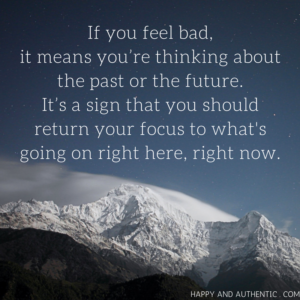
-
Be Childlike
Notice I didn’t say “child-ish”. To be childlike doesn’t mean to be juvenile in a silly or immature way. It means to possess the qualities of a child. Notice how children between the ages of 1 and 3 experience life. They react to everything as it happens. When they play, they throw themselves into it without hesitation or remorse. When they cry, they express their pain genuinely, without fear of judgement. And no matter what triggered their emotional or physical discomfort, the moment it passes they instantly revert back to their default settings: happiness and authenticity.
When they stop crying, it’s not that the pain has really gone away. It’s just that life is fluid. Something else is happening and now they’re focusing on it so intently that they aren't reacting to what hurt them. Young children don't dwell on anything, because they don’t even understand the concept of dwelling on pain (sadness, guilt) or anticipating it (fear, worry) until about age 4 or 5. As they get older, they’re taught about the past and the future, and eventually they forget what it was like to feel effortlessly present.
So try to remember what it was like when you were 2 or 3, when you understood what was going on around you, but all you could do was live in the moment, because you simply didn’t know any other way to live. That’s how life is truly meant to be. And you can choose to experience it again.
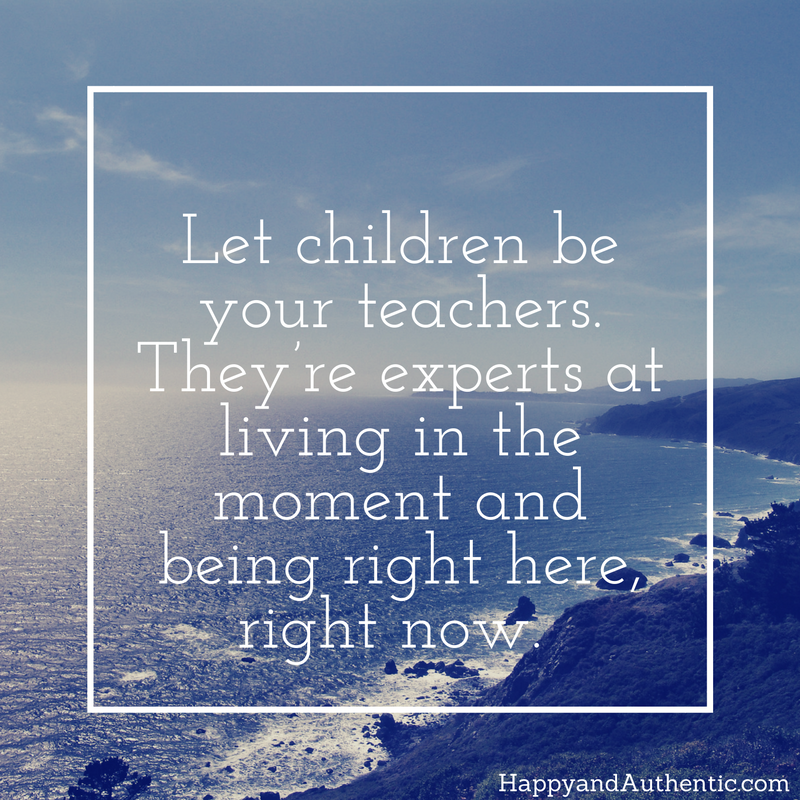
-
Be Sensible & Sensitive
Among other things, “sensible” means “aware, mindful and conscious” and “sensitive” means “perceptive, insightful and receptive”. When you endeavour to be both of those at once, you notice what’s going on around you because you’re in tune with your sense of hearing, sight, smell, taste and touch. You also embrace whatever comes with an open mind and an open heart, without judging its intention or purpose.
Go for a walk and notice the input of your senses in this way. Don’t listen to music. Don’t talk on the phone. Just listen to the sounds around you and don’t assign labels to them. The sound of a bird chirping is not better than the sound of a car honking. They both simply are what they are. Accept that truth. Take in the smells, the sights, the sounds and the feelings of being wherever you are. Don’t try to accomplish anything else.
Don’t take this walk with the expectation that you'll have a life-altering revelation. You might, but all I’m asking is that you don’t intend to, because that puts unnecessary pressure on your experience to become something when it is under no obligation to bend to your will.
If you speak with someone, actively listen to them. Don’t just assume you understood their gist and wait for your turn to speak. Try to focus on the sound of their voice. Pay attention to how you feel during the conversation. Don’t wonder about how they feel about you, whether or not they're judging you, or what kind of relationship you share with them.
If you’re alone, feel what the warmth or the cold of the air around you feels like on your skin. Again, don’t tell yourself whether you like it or not. Just notice it and then move on to the next thing you notice. This exercise is about appreciating life exactly as it is.
This can be done anytime, anywhere. While you’re doing the dishes, really pay attention to how the water feels cascading down your skin. Is it hot? Is it cold? Don’t judge whether it’s too hot or too cold. Just notice what temperature it is. Try not to allow yourself to think about how fast you’re going or how hard you’re working or how much more you could be doing instead.
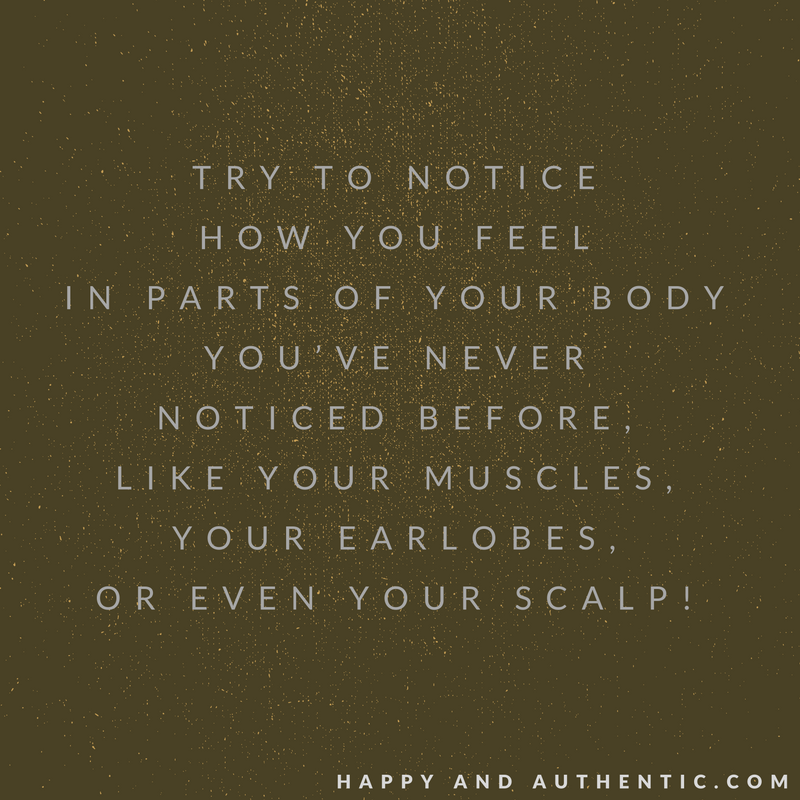
-
Distract Yourself on Purpose
Sometimes it’s as simple as reading a book, listening to music or watching a movie. The main reason we enjoy these things in the first place is that we become absorbed by them quickly and effortlessly. They're good at helping us forget our emotions, because they're easy to fall into.
When we experience a well-told story, we wholeheartedly throw ourselves into its plot and become one with it. We live it the way we should live our own lives, step by step and entirely in the present moment. You cannot truly appreciate good music unless you are really listening to it without anything else on your mind. You can’t enjoy a good book unless it has your full attention (I’m sure you’ve experienced reading the same line over and over again when your mind was wandering elsewhere). You can’t properly follow a movie unless you become one with the characters.
Even though we do these things often, we don’t notice the lessons they could be teaching us. I don’t mean the moral of the story or the message of the song, but the art of immersion. Transfer that lesson to other simple things you do, like shower, cook or garden. Anything that appeals to you. Pay attention to the process and don’t try to distract yourself. Switch off the television when you’re eating, so you can slow down and really taste your food. Don’t listen to podcasts while you’re walking down the street. Smell the air and feel your feet on the ground.
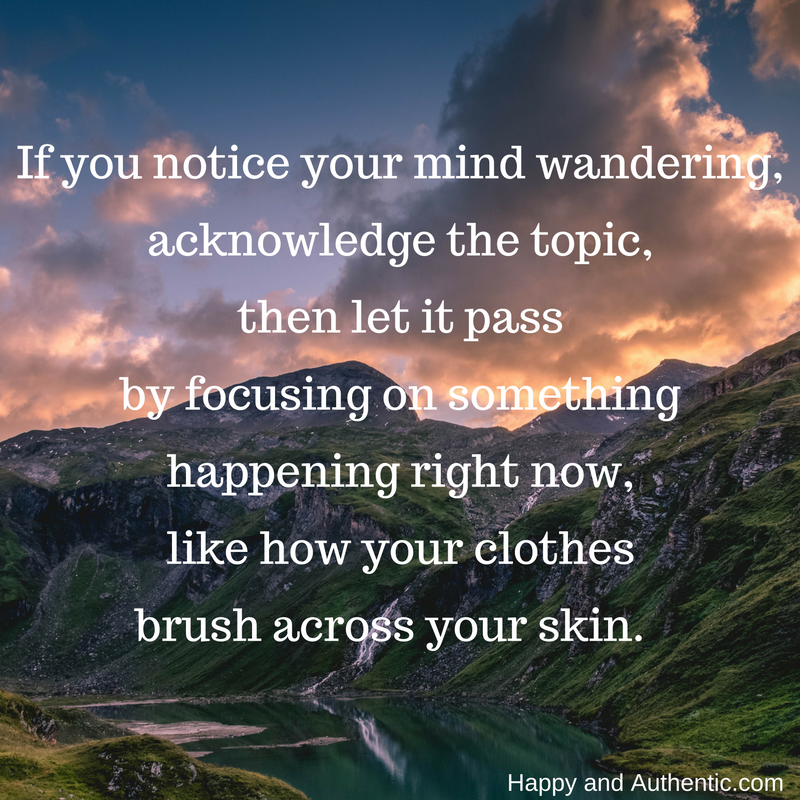
-
Explore Different Kinds of Meditation
I’d like to emphasize that mindfulness is not meditation. You CAN have mindfulness without meditation, but you CANNOT have meditation without mindfulness. The difference is subtle, but important. Increasing your capacity to meditate will simultaneously develop your mindfulness skills.
There are dozens of types of meditation. Each one requires different skills and provides different benefits. If you’ve never meditated before, I’d recommend you start with guided meditation, because it’s the easiest. A quick Google search can reveal millions of them. Following someone’s voice and letting it guide your thoughts is an ideal way to ease yourself into the world of meditation because it helps you quiet your mind of its usual chatter. You are inadvertently being present because you are focusing only on what that voice is saying to you.
As you develop your skills and feel more confident trying to meditate alone, it’s important to keep a few things in mind: meditation necessarily mean you’re thinking of nothing. You do not need a completely still and empty mind in order to meditate successfully. Instead, you need only to notice where your thoughts go without attaching yourself to them or allowing them to take you on a journey.
One type of meditation involves noticing your thoughts and practising the art of letting them simply come and go. An easy way to learn to do this is to do a "mindless" and uninteresting task – one that doesn’t require a lot of concentration and that you can do on autopilot (sweeping the floor, washing the dishes, etc.). Allow your mind to wander and pay attention to what pops into your head. Don't try to stop yourself, but don’t follow your thoughts down the rabbit hole either. When you get lost in your thoughts, they lead you to the past or the future. When you notice where your thoughts go without judging them, they lead you to self-awareness and inner peace.
Another type of meditation is to focus on your bodily sensations. The breath is a common favorite of yogis everywhere, because it’s always with you and can be noticed no matter what’s going on. But you don’t have to limit yourself to your breath. You can focus your attention on the pressure of your feet on the floor or a cramp in your muscles. Whatever it is, noticing it without judging it will help you forget about your negative emotions as well as reduce certain types of physical pain.
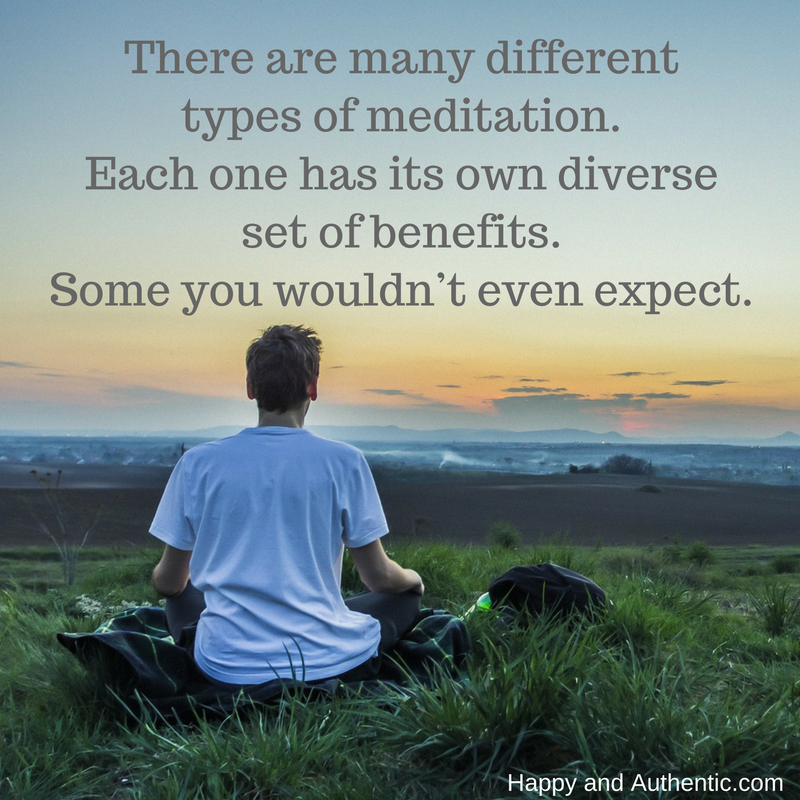
Those are my Top 5 ways to mindfulness into your life.
I hope they serve you as well as they've served me. Spend the coming week incorporating these tips into your daily routine. I promise you, you have so much to gain from it.
If you were brought here through my newsletter and you haven't yet watched the video above, check it out to find out why and how being present in the moment can enhance your life. Subscribe to my Youtube channel, if you'd like to be notified every time a new video becomes available.
If you were brought here from my youtube video, I invite you to explore the self-help resources tab of my website. There you will find the Top 3 books I recommend to read if you're looking to create happiness for yourself.
If you'd like some extra help with any of my Happiness Strategies, book a complimentary Breakthrough Session and I will personally assist you on your journey to discover your own source of happiness.
See you next week!
And remember: Happiness doesn't require energy. It requires Strategy.

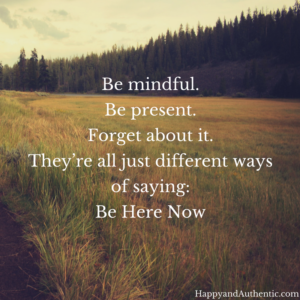
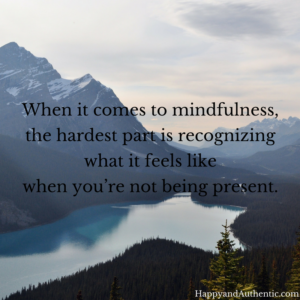


is helpful and useful
, I think this is helpful and useful
thanks, I think this is helpful and useful
Thank you so much for this information, I greatly appreciate it and will incorporate it into my daily living!
That’s wonderful to hear, Sheryl! Thanks for sharing. ^_^